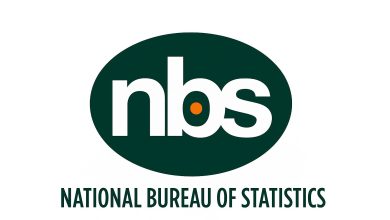Naira Strengthens as CBN Reforms Boost Confidence, Speculation Declines
The naira has strengthened to around ₦1,460 per dollar, its highest level in 2025.
Analysts credit CBN reforms, rising reserves, and reduced speculation for restoring market confidence.
Nigeria’s naira has recorded one of its strongest rebounds in years, supported by the Central Bank of Nigeria’s ongoing reforms, rising foreign reserves, and a sharp drop in speculative trading in the foreign exchange market.
The currency is currently trading around ₦1,460 per dollar on the parallel market and ₦1,475 at the official window, its highest level so far in 2025. The narrowing gap between both markets signals growing alignment and improved confidence, which analysts attribute to the CBN’s policy interventions.
Nigeria’s external reserves have also climbed to $43.05 billion, strengthening the country’s financial position. Key measures such as exchange rate unification, the introduction of the Foreign Exchange Code, and the launch of the Electronic Foreign Exchange Matching System (EFEMS) are credited with stabilizing the FX environment.
Since taking office in October 2023, CBN Governor Olayemi Cardoso has focused on rebuilding transparency and credibility in the FX market. His administration has cleared an estimated $7 billion backlog, unified multiple exchange rates, encouraged inflows from international oil companies and portfolio investors, and strengthened compliance monitoring.
The naira’s recent rally is backed by solid fundamentals, including stronger demand for local currency and reduced speculative activity. Cardoso’s emphasis on efficient reserves management has also yielded results, with the country now holding an import cover exceeding eight months, well above the international standard of three months.
The improved stability has renewed interest from foreign investors, especially portfolio investors who had previously exited due to uncertainty. Oil export receipts and growing diaspora remittances have further boosted inflows.
During the CBN’s 302nd Monetary Policy Committee meeting, Cardoso disclosed that Nigeria’s current account surplus rose to $5.28 billion in the second quarter of 2025, up from $2.85 billion in the first quarter.
Market operators confirm that speculators are losing money as the exchange rate steadies. Lagos-based Bureau de Change trader Garuba Sarki said several dealers had to sell dollars below cost, noting that the “era of quick profits from speculation is over.”
Analysts at Commercio Partners attributed the trend to increased FX liquidity, improved reserves, and reduced arbitrage. Head of Research Ifeanyi Ubah described the rally as “more sustainable than previous rebounds” but warned that stability depends on fiscal discipline, higher oil output, and export diversification.
Under Cardoso’s leadership, the introduction of the Nigeria Foreign Exchange Code has been widely regarded as a turning point. The code enforces ethical standards, transparency, and compliance in FX dealings. Cardoso said it is built on six key principles: ethics, governance, execution, information sharing, risk management, and confirmation processes.
He warned that any violation of the new framework would attract penalties under the CBN Act 2007 and the Banks and Other Financial Institutions Act 2020.
To enhance transparency, the CBN also launched EFEMS, a digital platform providing real-time data on exchange rates, volumes, and transactions, to curb speculation and improve accountability. Additionally, the bank lifted the restriction on 41 items previously barred from accessing foreign exchange, opening up more business opportunities.
The CBN has also introduced new diaspora-focused products such as the Non-Resident Nigerian Ordinary Account and Non-Resident Nigerian Investment Account, designed to facilitate remittances and encourage investment in Nigerian assets.
According to Western Union’s Regional Vice President for Africa, Mohamed Touhami El Ouazzani, the continent received $90 billion in remittances in 2023, underscoring their economic importance.
While the reforms have yielded visible gains, experts emphasize the need for policy consistency. Sustaining naira stability, they say, will depend on maintaining fiscal discipline, growing crude oil production, and expanding non-oil exports.
Cardoso said the unification of exchange rates and clearing of backlogs have restored business confidence, adding, “These reforms have given manufacturers and airlines the clarity they need to plan for the future.”
With speculation declining, reserves rising, and investor interest returning, the naira appears on a stronger footing than in recent years. Analysts agree that if reforms stay consistent, Nigeria’s currency could maintain its newfound stability and reclaim its position as a symbol of economic resilience.



